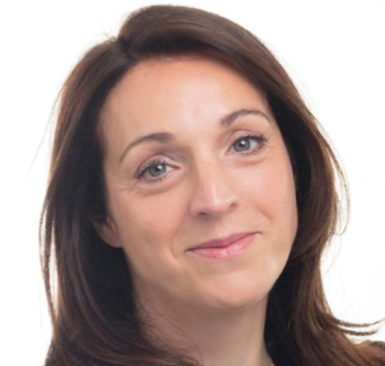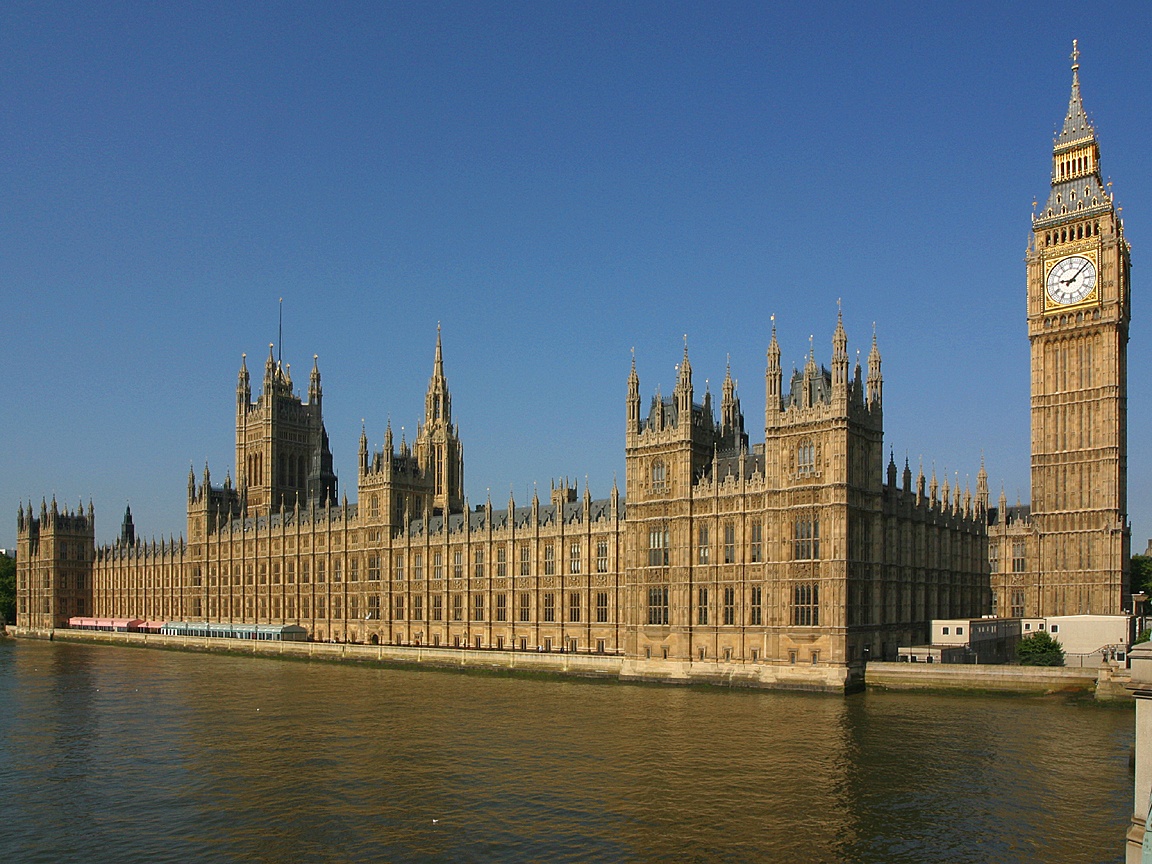After a hectic year, David Adams catches up with NHS Charities together CEO Ellie Orton to find out how the pandemic has flung the charity to fame, and what 2021 has in store.
-------------------------------------------------------------------------------------------
Few will look back on 2020 very fondly. Covid-19 has caused enormous suffering and turned many personal and professional lives upside down. Ellie Orton, chief executive of NHS Charities Together, agrees that she had an unexpectedly eventful year, as the role and profile of the organisation she leads were transformed. “I’m definitely still processing what we’ve been through,” she says.
NHS Charities Together is a membership organisation: its members are the 240 or so charities that support individual hospitals, trusts or other NHS institutions throughout the UK. Some of the charities are older than the NHS; some, like the Great Ormond Street Hospital Children’s Charity, are very well-known. Collectively, in pre-Covid times, they contributed about £1 million per day to NHS causes.
Prior to the pandemic, NHS Charities Together organised summer fundraising events, but focused mostly on supporting its members’ practical needs. In 2020, its fundraising activities have acquired a somewhat higher profile.
Experience gathered during a varied career has given Orton a portfolio of skills well-suited to her current role. Her earliest ambitions were inspired in part by her parents, David and Carol Tompkins. David was a farmer – Orton grew up in the Warwickshire countryside – who later became managing director of a wire manufacturer, where he arranged for some female Asian employees to be paid two salaries, so the patriarchs of their families would not take away all their money. Later, having gone into the church, David arranged the covert transportation of medical supplies and other banned items into pre-revolutionary Romania. Orton’s parents also took her to watch the film Cry Freedom when she was 12 years old, after which she says she wanted to go to South Africa to “stand against oppression”.
She dropped out of university in 1993, after an uninspiring year of a print media course was followed by a deeply inspiring summer trip to Romania with a church youth organisation to build a youth centre in the Carpathian Mountains. She spent the next few years as a youth worker in the UK and abroad. Between 1995 and 1998 she did indeed go to South Africa, working with faith-based organisations, in Soweto and in the rural largely impoverished north of the country.
After returning to the UK in 1998, Orton resumed higher education, taking a degree in Youth and Community Studies with Applied Theology at Oxford Brookes University; and continued working with young people: for Warwick Churches, then for the Bath and Wells Diocese; and then, for nine years, at Warwickshire County Council youth services.
‘We are all connected’
In 2013, she applied for a job at the Jon Egging Trust, a charity founded the previous year by Emma Egging in memory of her husband Jon, a member of the RAF Red Arrows who was killed in an accident in 2011. The Trust’s mission, “Inspiring young people to be the best they can be”, chimed with something that Orton holds dear: the South African philosophy of Ubuntu. This can be translated in different ways, but in essence, it means everyone must help each other if any of us are to fulfil our potential. “We are all connected,” as Orton puts it.
She spent two years as head of youth programmes for JET, helping it to grow from a start-up into a national charity working with almost 10,000 young people. She also served as its interim CEO for 18 months from June 2016 – an experience that left her wanting to lead another charity with a national remit. She gathered further leadership experience in a short-term assignment as CEO of Kairos Women Working Together, a small Coventry-based organisation that supports women at risk of sexual exploitation. Then, in 2018 she applied for her current role, starting work at what was then called the Association of NHS Charities, in the summer of 2018, as it was coordinating the NHS Big Tea fundraising events to celebrate the 70th anniversary of
the NHS.
“A lot of members said they would like to do more of this sort of fundraising,” says Orton. Her team and the association’s trustees consulted members and developed a new strategy, including rebranding the organisation as NHS Charities Together. The services it provides to members include digital resources to assist with fundraising, financial management, governance and grant-making; alongside networking, training, mentoring and access to the NHS Big Tea campaigns.
Some might suggest that it should not be necessary to rely on charities to support a health service funded through taxation. But these charities have a remit to deliver “additional resources above and beyond what the state should do”, says Orton. “This isn’t replacing government funds.”
At the start of 2020, NHS Charities Together recruited a new member of staff, bringing headcount up to four. Projected turnover for 2020 was £500,000. But in March, the world changed. As the pandemic swept across the UK, the charity launched a Covid-19 appeal, focusing on providing extra support for NHS staff, volunteers and patients. The day it launched, March 23rd, Orton took a phone call from XTX Markets, a financial investment company that supports Great Ormond Street and wanted to contribute to a national appeal.
‘I cannot explain how crazy it was’
“By the end of the day, they had pledged £10 million,” she says. “So that was a good start!” Over the next few weeks, donations from corporates, foundations, high net worth individuals and the general public poured in. The Thursday night doorstep Clap for Carers was using the NHS Charities Together logo to publicise the appeal. The charity worked with broadcasters and corporate supporters to launch the OneMillionClaps text donation campaign. “The whole country threw its arms around the NHS,” says Orton.
The hundreds of people fundraising for the appeal included the remarkable Captain Tom Moore. At the time of writing he has raised £32,796,355 – set to rise to £39 million with Gift Aid. Other notable contributions included Joe Wicks donating advertising revenue from his livestreamed ‘PE with Joe’ workouts, which ran from March to July: another £580,000. By mid-November the overall total had reached £140 million.
Orton is quick to pay tribute to the many people and organisations that have collaborated on the huge task of managing the appeal. They include staff seconded to the organisation from member charities, fundraising, communications and website specialists; and the investment organisation Churches, Charities and Local Authorities (CCLA), which set up new banking facilities to streamline the grant-making process. The first grants were made on 1 April. By August £30 million had been granted out to the member charities.
Between the launch of the appeal in March and her birthday on 17 May Orton worked for roughly 15 hours each day, seven days a week. “I cannot express how crazy it was,” she says. She took a day off for her birthday, then cut back her working week to a mere five days.
Throughout this period, she was working from home, in rural Warwickshire, with her husband Nigel, a director at a packaging and logistics firm; and their three children, who are aged 11, 12 and 13. “The kids didn’t get to speak to me very much,” says Orton. “They would bring me a cup of tea, or make me a sandwich. They made their own lunch and cracked on with home schooling. My husband helped a lot, although he is very busy himself. I could not have got through it without him.”
Orton did finally get a break in August, when the family escaped for a holiday in France. Since then she says she has tried to pace herself a little bit better. “I’m trying to get out every day at lunchtime, to walk the dog and listen to a podcast,” she says. Some of the podcasts, she admits, are work-related, but she also listens to others about “uplifting” subjects including sport and wellbeing.
“I’m trying to make sure I’m recovered for 2021,” she says. “Now that we have this much higher profile, we need to be able to use that to the best benefit of our members – and ultimately to the benefit of NHS patients and the health of the country.”
If their efforts help to ensure that the NHS and the charities that help to support it emerge from this crisis in good shape, then Orton, her colleagues and collaborators will certainly deserve some credit – and all of us will benefit. 2020 may have been a uniquely destructive year, but it has also demonstrated the truth of Ubuntu: we really are all connected. ■
Latest News
-
Charities are ‘most trusted British institution’, survey finds
-
Charities’ ‘overuse’ of Africa imagery ‘risks reinforcing outdated stereotypes’
-
Covenant response: Leaders praise government commitment but action needs to follow
-
New benefit added for Charity Times Leadership Network members
-
PM: Charities won’t be 'shut out' or 'left to pick up the bits' under new covenant
-
Government hopes to reset relationship with charities as it launches civil society covenant
Charity Times video Q&A: In conversation with Hilda Hayo, CEO of Dementia UK
Charity Times editor, Lauren Weymouth, is joined by Dementia UK CEO, Hilda Hayo to discuss why the charity receives such high workplace satisfaction results, what a positive working culture looks like and the importance of lived experience among staff. The pair talk about challenges facing the charity, the impact felt by the pandemic and how it's striving to overcome obstacles and continue to be a highly impactful organisation for anybody affected by dementia.
Charity Times Awards 2023
Mitigating risk and reducing claims

The cost-of-living crisis is impacting charities in a number of ways, including the risks they take. Endsleigh Insurance’s* senior risk management consultant Scott Crichton joins Charity Times to discuss the ramifications of prioritising certain types of risk over others, the financial implications risk can have if not managed properly, and tips for charities to help manage those risks.
* Coming soon… Howden, the new name for Endsleigh.
* Coming soon… Howden, the new name for Endsleigh.
Better Society

© 2021 Perspective Publishing Privacy & Cookies











Recent Stories